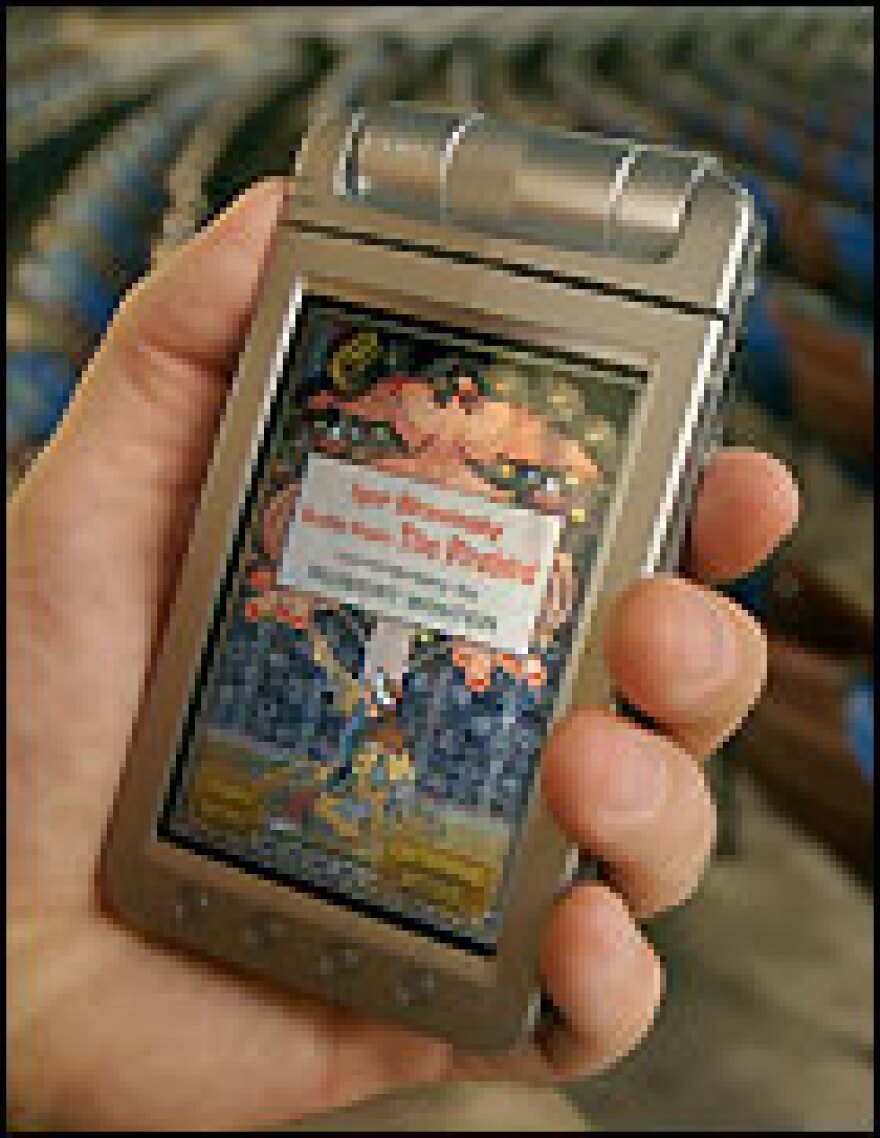
Eight American orchestras have filed for bankruptcy in the last year. With classical concert attendance in decline, or at best, holding steady, orchestras are looking for new audiences, and considering new ways to attract those audiences. One possibility is a high tech device called the "Concert Companion." NPR's Fred Child had the opportunity to test-drive one of these gadgets during a performance of Beethoven's Fifth Symphony at this summer's Aspen Music Festival.
Presented on a PDA (personal digital assistant), the Concert Companion's key feature is the "listener's guide to the music" that updates you with information about what you're hearing, in real time. As the music plays, a computer hidden in a corner of the hall uses wireless technology to transmit signals to your PDA. Carefully synched with the music, the computer sends a new block of text every 30 seconds or so, suggesting what to listen for in that passage of music.
A screen from the Concert Companion to Beethoven's Fifth Symphony reads: "With the unlikely combination of cellos doubled by violas, a songful, long-breathed melody unfolds over plucked string basses." Alternate features also provide more general information about the work, its history and the composer.
The seasoned concertgoer might consider this gadget a distraction rather than an enhancement. That possibility is not lost on Roland Valliere, creator of the Concert Companion and former executive director of the Kansas City Symphony. He says the main goal of the device -- nicknamed "CoCo" -- is "to attract new listeners to come and attend concerts, much like audio guides do in the museum world."
If orchestras buy this new technology, you may be able to rent a Concert Companion PDA for $7 or $10 at a concert hall near you as soon as the fall of 2004.
Copyright 2022 NPR. To see more, visit https://www.npr.org.



